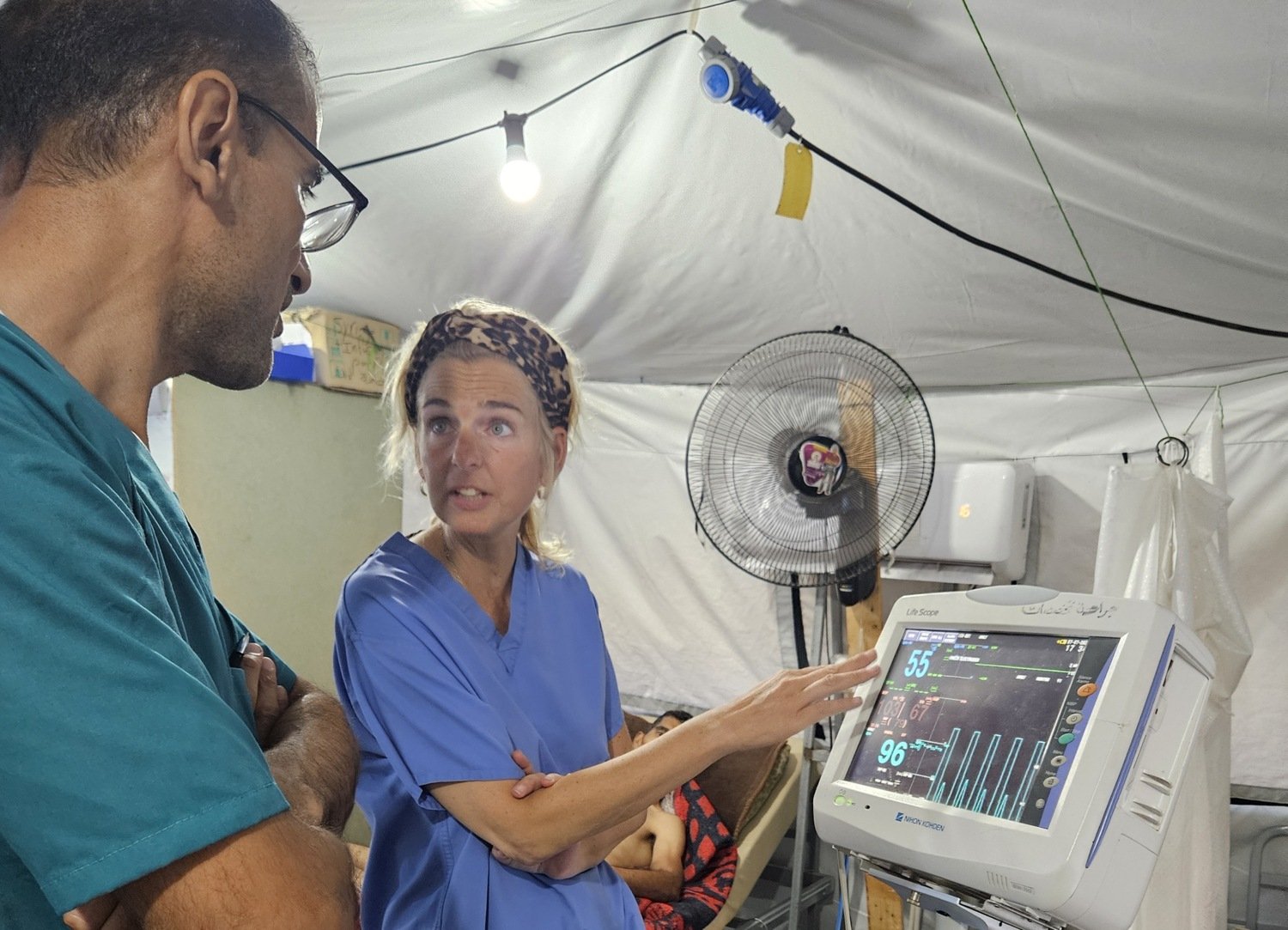Global Disaster Medicine in practice: Märit Halmin’s field mission in Gaza

Märit Halmin is an intensive care physician and researcher in the research group for Global Disaster Medicine – health needs and interventions at GPH. This summer, she worked at a field hospital in Al-Mawasi, Gaza – an area declared a humanitarian zone but where bombs fell around the clock. For five weeks, she treated seriously injured children and adults. In tents without running water and with a lack of pain relief, every medical intervention became a battle against time and resources.
We asked Märit Halmin a few questions to learn more about her mission in Gaza, the ethical challenges she faced, and the insights she brought back to her work and research in Sweden.
Tell us about the background to why you went to Gaza this summer.
I got a request from UK Med* to go to Gaza and try to build up a High Dependency Unit (HDU) in their field hospital. I saw it as both a privilege and a duty to go, if I could contribute.
How are such missions organized, and what happened when you arrived?
I worked in a field hospital, which meant working in tents in extremely difficult conditions. From the very start of my mission, I worked almost non-stop. The number of severely injured who arrived at the hospital was huge, as well as the ongoing attacks in the surroundings. We tried to save lives, but with very scarce resources available.
How did you prioritize medical efforts when resources weren’t sufficient for everyone?
We lacked everything from crucial medications to examination gloves and tap water. We could perform the initial life-saving interventions, but the rest of the care was anything else than optimal. The small amount of analgesia we had, we prioritized to use during surgery, with the consequence that the patient post-surgery only received paracetamol for pain. Certain conditions, such as severe head trauma, we could not prioritize due to very limited ICU resources and poor prognosis, and we wanted to save the ventilators for more short-term treatments with better prognosis. It was difficult to accept, that a condition potentially curable in a Swedish context, suddenly became palliative in Gaza due to a lack of resources.
What do you take with you from this experience into your continued work and research in Sweden?
Experience from working in conflict and with limited resources is extremely useful in my work here in Sweden to try to strengthen our crisis- preparedness. Once again, I realised the importance of training and discussing how to prioritize between patients and interventions now, in advance, before the crisis arrives.
What would you like to say to other doctors and researchers who are considering getting involved in similar missions?
It is a privilege to get the chance to help out in concrete disaster situations and to share the reality of a very affected population, even if very short time. It is an experience that is important both professionally both also as a human being.
* UK Med is a British non-governmental organisation verified as an Emergency Medical Team by the World Health Organisation.
